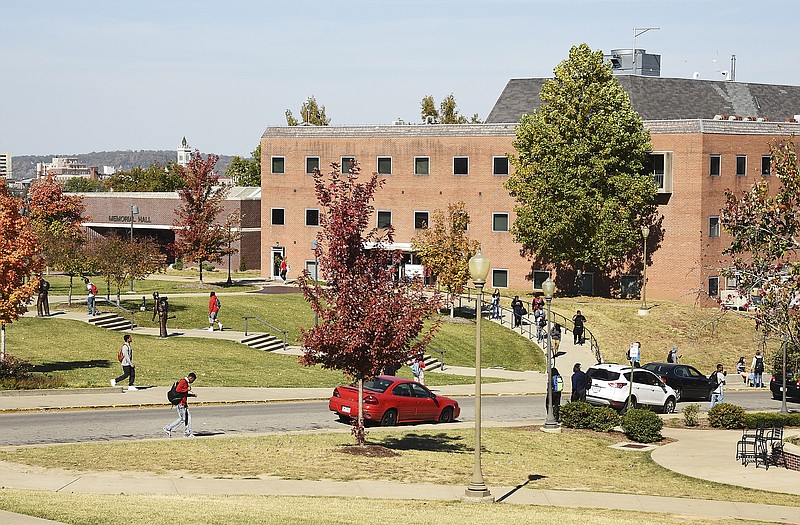Facing a cut in state revenues, Lincoln University officials told the school's faculty at least 23 faculty jobs could be cut.
"Lincoln University has been working diligently over several months to plan for a tighter budget in the upcoming fiscal year, based upon previous announcement from Gov. Eric Greitens," LU spokeswoman Misty Young said in a Tuesday afternoon news release.
"As of today, we have not formulated any final plans for the Fiscal Year 2018 budget."
Young said a final plan will be completed in time for LU's curators to approve during their June 8 meeting.
History Department Chairman Bruce Scovill, a member of the campus-wide budget committee, told the News Tribune Tuesday: "The budget committee has been having very serious meetings almost weekly.
"We have had very frank discussions - but primarily about how to do things more efficiently, how to save a few dollars here and there."
Scovill noted the committee includes representatives from all areas - faculty, staff and administration.
"Keep in mind that all the budget committee can do is make recommendations," he cautioned, "not insist on what or who might get cut."
Debra Greene, LU's provost and vice president for Academic Affairs, said in a memo Tuesday to faculty and staff, that LU's administrators spent an "entire day looking for other options" and have included several suggestions from the budget subcommittee. "We are still $1.8 million short. This amount has to come from salary; there are no other places to cut.
"A reduction of this size amounts to 23 faculty positions paid out of the general fund."
That's about 15 percent of Lincoln's 152-teacher faculty.
Bryan Salmons, LU's Faculty Senate chair, told the News Tribune Greene's memo was sent after she and Jennifer Benne, dean of the College of Arts and Sciences, met Tuesday morning with department heads.
Salmons said the department heads were asked "to offer up 'victims'" who could be terminated, but no names were submitted.
Scovill said he told Greene and Benne during the meeting his research suggests "a campus-wide retrenchment of faculty, staff and administrators to approximately what we had in fall 2011. The university data (available to the public) indicates we had 3,388 students in fall 2011, and in fall 2016, we had 2,738.
"While the number of faculty has stayed about the same, we have added about 20 administrators - an entire new layer of bureaucracy has been created during the current president's tenure."
Scovill noted no state or federal laws mandate having those positions, "but they have been created nonetheless - and where is the pay off? LU is down 650 students.
"That is a loss of 150 students per year - and the hundreds of thousands of dollars now being spent on these new administrators is not improving the quality of the university or helping grow the numbers of students."
Salmons said the department heads suggested "a number of alternatives that, at least on paper, add up to the full $3 million shortfall without any loss of faculty jobs."
Lawmakers last week approved a $20,532,513 appropriation for Lincoln for the state business year that starts July 1 - but that includes a roughly 6.6 percent reduction in LU's core funding.
"As Lincoln deals with the budget, it is very clear that Academic Affairs personnel, in instruction, will be impacted," Greene wrote in her memo. "The deans and department heads/chairs have looked at their operational budgets and salary savings resulting from new hires at salaries lower than the senior faculty they are replacing.
"All of these are critical areas of need and cannot be left vacant.
"(But) this has not resulted in enough reductions to cover our shortfall."
And, Greene wrote, all teachers could potentially be targeted.
"The reductions cannot follow the 'last hired' model" which would remove newer teachers before longer-serving ones, she said. "We must be purposeful in determining how to maintain and grow programs while reducing faculty.
"I have asked the deans to look closely at each of their program areas."

